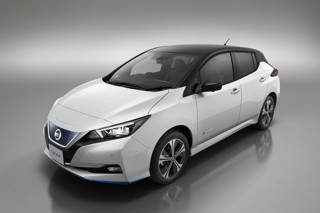The number of company car drivers appears to have fallen by 50,000 year-on-year, according to new benefit-in-kind statistics published by HMRC.
However, tax officials say that initial analysis suggests a new way of reporting company car tax may have skewed the figures.
Since 2009-10, the number of company car users had remained relatively stable (at just under 1 million). But, new provisional figures for 2017/18 indicate a dramatic fall from 940,000 in 2016/17 to 890,000 the following financial year – a 5.3% decline.
HMRC says that the figures do not include any estimate of the impact of voluntary payrolling, which could account for a “significant proportion” of the decline in reported numbers.
Voluntary payrolling was introduced in 2016 to ease the reporting burden of benefit in kind (BIK), with employers moving away from submitting P11D returns to collecting tax on company cars through payroll.
However, employers were not able or required to submit more detailed information about company cars when using the new regime.
This changed from 2017-18, when employers payrolling car benefit were able to provide more detailed data about the cars being provided through their FPS (Full Payment Submission). But, HMRC says that providing this data was not mandatory until 2018-19.
As such, detailed information about the recipients of company cars through voluntary payrolling was not provided by many employers during the period covered by these statistics. The expectation is that next year’s BIK statistics will include any company car recipients that could have been previously hidden.
It will only be then that the fleet and leasing industry will be able to get an accurate understanding of the number of company car drivers choosing cash instead of a car.
A Fleet News poll last autumn suggested that three-quarters (74.8%) of respondents were seeing an increasing number of employees choosing cash rather than a company car.
Prior to these latest figures being published, the UK’s largest car leasing company, Lex Autolease, had suggested the number of company car taxpayers could fall even further to 832,000 by April 2020 as a result of optional remuneration arrangement (OpRA) tax changes and WLTP.
It believes that the changes to company car taxation under OpRA have led to additional complexities and costs for customers and drivers and the introduction of the new emissions testing regime, WLTP, last year, led to a number of issues for fleet operators.
Furthermore, company car drivers are still waiting to hear how the Government may account for increases in CO2 values thanks to WLTP, when the measure is used for tax purposes from April 2020, and BIK tables beyond 2020/21.
See the August edition of Fleet News for further analysis of the HMRC data.
























Sage & Onion - 27/06/2019 13:39
In my opinion, this is HMRC trying to mask the effect of them not releasing future BIK rates by burying their head in the sand and denying any responsibility. The true number of company cars sold into the marketplace should surely be known by the manufacturers and leasing companies so why don't HMRC find out the true figures because if they are going to base their future BIK rate scale on assumptions like this to balance their CCT revenue then that isn't going to help businesses or drivers at all.